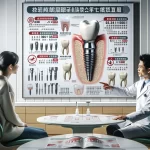Holistic dentistry, often referred to as biological or integrative dentistry, is rapidly gaining traction among individuals seeking natural and comprehensive approaches to oral health. This innovative form of dentistry emphasizes the profound connection between oral health and overall well-being, utilizing natural remedies and biocompatible materials. In this article, we will delve into the latest trends in holistic dentistry, explore the benefits of natural dental care, and examine how holistic practices are being seamlessly integrated into conventional dental treatments.
Understanding Holistic Dentistry
What is Holistic Dentistry?
Holistic dentistry transcends traditional dental care by considering the patient’s overall health rather than merely addressing dental issues. This approach integrates conventional practices with alternative therapies to foster comprehensive wellness. Holistic dentists advocate for a treatment philosophy that recognizes the interdependence of oral health and systemic health, ensuring that dental interventions do not adversely affect other bodily systems.
Core Principles of Holistic Dentistry
- Whole-Body Health: Holistic dentists view the mouth as an integral part of the body, believing that dental issues can significantly influence overall health.
- Biocompatible Materials: The use of non-toxic materials is paramount, avoiding harmful substances such as mercury found in traditional amalgam fillings.
- Natural Remedies: Incorporation of natural treatments like herbal mouthwashes, essential oils, and homeopathy to promote healing.
- Preventive Care: A strong emphasis on nutrition and lifestyle changes to maintain oral health and prevent disease.
Trends in Holistic Dentistry
Rising Popularity
The popularity of holistic dentistry is surging as more patients recognize the links between oral health and overall wellness. Many individuals are opting for holistic dentists due to their emphasis on natural and less invasive treatment options.
Integration with Conventional Dentistry
Conventional practices are increasingly adopting holistic principles. This includes:
- Utilizing biocompatible materials
- Offering nutritional counseling
- Focusing on preventive care strategies
Technological Advancements
Innovations in technology are enhancing holistic dentistry. Techniques such as digital imaging and laser treatments provide more precise and less invasive care options.
Patient-Centered Care
Holistic dentistry prioritizes personalized care by considering each patient’s unique health profile, lifestyle choices, and preferences. This tailored approach fosters trust and enhances patient satisfaction.
Natural Dental Care
Benefits of Natural Dental Products
Natural dental products—such as herbal toothpastes and mouthwashes—are gaining popularity for their effectiveness without harmful chemicals. These products contribute positively to maintaining oral health.
Common Natural Remedies
- Herbal Mouthwashes: Ingredients like tea tree oil, neem, and aloe vera help reduce inflammation and combat bacteria.
- Essential Oils: Oils such as clove and peppermint possess antibacterial and analgesic properties beneficial for oral care.
- Homeopathy: Remedies like arnica and calendula promote healing and alleviate pain post-dental procedures.
Nutrition and Oral Health
Holistic dentists often provide nutritional counseling to support healthy teeth and gums. A diet rich in vitamins and minerals is essential for optimal oral health.
Integration of Holistic Practices in Conventional Treatment
Biocompatible Materials
Many conventional dentists are now opting for biocompatible materials like composite resins and ceramic crowns instead of traditional amalgam fillings. These alternatives are safer and less likely to trigger allergic reactions.
Minimally Invasive Procedures
Holistic dentistry advocates for minimally invasive techniques that preserve natural tooth structure. Methods such as air abrasion and laser treatments effectively address cavities without the need for drilling.
Preventive Care and Education
Holistic dentists emphasize educating patients about preventive care practices, including:
- Proper brushing and flossing techniques
- Regular dental check-ups
- Lifestyle modifications that promote oral health
Stress and Anxiety Management
Holistic practices often incorporate stress management techniques such as aromatherapy, acupuncture, and relaxation exercises. These methods help patients feel more comfortable during dental visits.
Case Studies and Success Stories
Case Study 1: Biocompatible Fillings
A patient experiencing chronic fatigue attributed to multiple mercury fillings sought help from a holistic dentist. After replacing the fillings with biocompatible composite resins, the patient reported significant improvements in energy levels and overall well-being.
Case Study 2: Nutritional Counseling
A patient suffering from recurrent gum disease received dietary recommendations focused on increasing vitamin C intake while reducing sugar consumption. Alongside regular cleanings, these changes led to improved gum health and reduced inflammation.
Case Study 3: Stress Management
A patient with severe dental anxiety benefited from holistic stress management techniques like aromatherapy and guided relaxation. These approaches helped ease the patient’s discomfort during procedures, resulting in enhanced overall dental care.
Conclusion
Holistic dentistry presents a comprehensive approach to oral health by emphasizing the interconnectedness of the mouth with the entire body. By integrating natural remedies, biocompatible materials, and preventive care strategies, holistic dentists offer personalized treatments that promote overall wellness. As more individuals seek out natural and less invasive dental options, the appeal of holistic dentistry is poised to grow even further. Embrace this evolving field to enhance your oral health while nurturing your overall well-being!
What is holistic dentistry?
Holistic dentistry is an approach to dental care that considers the patient’s overall health as it relates to their oral health. It focuses on using safe, conservative measures with modern technology, techniques, and evidence-based research to treat the oral cavity.
How does holistic dentistry differ from traditional dentistry?
While holistic dentists provide standard care like cleanings and restorations, they focus on minimally invasive treatment and may avoid some materials used in traditional dentistry. They aim to find the root cause of disease rather than just treating symptoms.
What are the trends in holistic dentistry?
Trends in holistic dentistry include the use of biocompatible materials, which are designed to be harmonious with the body, and the integration of oral healthcare into general healthcare provision. Nanotechnology is also being explored for its potential to enhance the properties of dental materials.
How does holistic dentistry integrate into conventional treatment?
Holistic dentistry integrates into conventional treatment by considering the whole person, not just their oral health. This approach can involve working with other healthcare professionals to provide comprehensive care and find the root cause of disease.
What are the benefits of holistic dentistry?
Benefits of holistic dentistry include a focus on minimally invasive treatment, the use of biocompatible materials, and an emphasis on the connection between oral health and overall health. This approach can lead to improved overall health outcomes.







